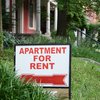How Does Rent Control Impact the Real Estate Investor?

Rent control policies have long been posed in an agonistic way within the Canadian real estate environment. Rent control, which is meant to achieve affordability and stability for tenants, may also create huge hurdles and opportunities for real estate investors. Investors need to be aware of these intricacies of equipping themselves to obtain the best return on a property while complying effectively with the regulations. This guide will go into the most important intricacies of this process and how to best navigate this environment.
How Does Rent Control Work in Canada?
Rent control is an important aspect to note for all provinces in Canada, regardless of where you reside. In general, rent control restricts the amount of rent that landlords can increase annually given the principle of inflation or by a government directive.
Let’s take Ontario as an example for our province. In Ontario, they have formulated the grounds for which rent is increased each year relative to the Consumer Price Index (CPI) . At the same time, provinces such as Alberta have no rent controls whatsoever; thus, the market will determine everything. The restrictions of British Columbia are stricter because increases are limited to a fixed percentage above inflation. Rent control impact on investors and their respective laws differ quite a bit across Canada, making it necessary for any real estate investor to be in touch with their respective province of interest and flexible to avoid money or legal pitfalls.
Table: Rent Control Policies Across Selected Provinces
| Province | Annual Rent Increase Cap | Exemptions |
|---|---|---|
| Ontario | CPI-based (e.g. 2.5% in 2023) | Units first occupied after 2018 |
| British Columbia | CPI +2% | New builds for the first 10 years |
| Quebec | Based on tribunal approval | No blanket exemptions |
| Alberta | No rent control | N/A |
Challenges of Rent Control for Landlords
Challenges around real estate investment control laws in Canada are manifold. Among them, the following come forward:
- Profitability Constraints: An inability to adjust rent to changing market conditions can impact cash flow and long-term growth.
- Increased Operational Costs: With an increase in property taxes, so is the increase in insurance premiums and maintenance, a financial drain to an investor.
- Regulatory Compliance: Compliance with the set of provincial rent controls means much documentation and thus more administrative workload.
Landlords and prospective real estate investors will have to plan actively to meet these problems with, for example, increased concentration on rent-decontrolled properties or the acquisition of inexpensive, effective property management software.
How Does Rent Control Affect the Profitability of Rental Properties for Investors?
Though these policies work in favour of the tenant, they dramatically impact the bottom line for real estate investors. Some of the common problems it gives way to are:
- Reduced Revenue Growth: The cap on rents means an investor cannot enjoy rental income growth appreciating with the market and inflating with prices. Over time, it will reduce the profitability associated with rentals.
- Operational Cost Pressures: Maintenance costs, property taxes, and utilities continue to rise; these costs increase more rapidly than the rents, shrinking the margins further. That makes it difficult for the investor to maintain financial viability along with adherence to regulations.
- Capital Expenditure Decisions: One may delay upgrading or repairing a property because this may also affect the resale value of the property and tenant satisfaction. Without revenue growth, it is hard to maintain the appeal of a property.
Investors should also consider other ways around it through new builds, exempt properties, diversification of portfolio investments, and light-footed management services.
Benefits of Rent Control for Tenants
Rent control policies provide several advantages for tenants , including:
- Affordability: It provides a boost for tenants’ financial security, budgeting, etc, and makes tenancies more predictable and stable. The affordability allows tenants to escape from the resulting financial crunch created by wild rent hikes that fail at dampening the natural rise of the city’s population.
- Housing Stability : Rent control reduces displacement through a rent hike, providing people chances to plant roots in their communities. Stable housing means a better quality of life and some community engagement.
- Consumer Protection: It ensures that tenants are protected from various possible exploitation by their landlords as well as through fair treatment of the landlords and a balanced market in the home rental services. Rent control laws guarantee a fair amount of fairness and ensure the tenant loses his trust in the rental system.
Landlords desiring the necessary balance of profitability and tenant satisfaction can turn to understand tenant benefits to reduce vacancy risks and create long-term tenant relations. Giving away secure, affordable housing controlled under rent control has the effect of reducing tenant turnover and maintaining high occupancy rates.
How Can Investors Legally Increase Rent on Controlled Units?
There are many ways investors can legally increase rents in rent-controlled markets. This helps more than just maintain profitability, it helps add more value to the rental property.
- Capital Improvements: In provinces allowing things such as grounded rent increases above the cap, then landlords can apply for those rent increases. On top of tying up the tenant with higher rents to justify such improvements, they not only add to the property value and tenant satisfaction but they are also responsible for improvements in facilities, infrastructure, etc.
- Tenant Turnover: Most jurisdictions allow landlords to reset the rent to market value upon a unit-by-unit unit vacating, giving them the ability to match their going rates in the current market . Landlords can benefit from positive relationships and tenant turnover encouraging this.
- Agreement-Based Increases: Through negotiating new lease agreements with tenants, the agreements include incremental rent hikes over several years to not only move tenants to market rent but gradually ease them into market rent. Structured increases give both parties predictability on multi-year leases.
- Add-on Services: Some of these new services include parking, storage, or furnished units and they can be charged an additional fee — something that doesn't violate Canadian rent control regulations and can supplement rental income. Investors can also search for ways to provide amenities that meet tenant's needs, thus increasing property value.
“ Investing in rent-controlled real estate requires a broad plan of action, strategic asset selection, and proper understanding of regulatory nuances. Even within the restrictive environment, there is scope for opportunity for those investors who adapt effectively.”
— Rushi Parikh , Commercial Mortgage Agent Level 2 at Clover Mortgage
Comprehending these regulations helps people understand rent control's impact on investors to maximize their rentals with due respect to the regulatory framework. In addition, being updated on the changes in legislation and consulting professionals from property management firms or legal experts can generate other ways to increase revenue.
Conclusion
There is a double-edged sword regarding rent control laws in Canada for real estate investors. While stability to tenants, as well as curtailing rent hikes, they present limits that challenge profitability and investment growth. To navigate all the complexities of real estate rent control regulations, investors would have to spoonfeed themselves through research, make strategic, smart property acquisitions, and even delve into legal rent increase options.
To understand these regulations and find the best solution, it is crucial to have proper guidance from real estate experts. Contact us at Clover Mortgage to learn more about the best strategic financing options for rent-regulated properties.
FAQ
Who benefits most from rent control?
For tenants, rent control only really helps by offering stability and affordability. But it also applies to investors with long-term, fully occupied, low turnover rate properties.
What impact does rent control have on property maintenance and upgrades?
Property deterioration can be caused by the rent control policy due to cost limitations on the ability to recoup expenses leading landlords to prevent making extensive upgrades.
How can rent control policies influence an investor’s portfolio strategy?
Investors might concentrate in regions with no or restricted rent management, invest in excluded properties, or broadly invest in commercial real estate.
What are the risks of investing in rent-controlled properties?
Some risks include increased compliance costs, diminished income potential, and potential regulatory changes.
Are there any incentives for landlords under rent control policies?
Some jurisdictions let landlords get tax credits or grants for completing energy-efficient upgrades, or for keeping affordable housing units.





